Gunbalanya School rolls out red carpet for 11 NTCET graduates in 2023
A school nestled in West Arnhem Land’s lush greenery is celebrating the bittersweet end of its graduating cohort’s academic journey.
In a lush green community known for its vibrant arts centre or the odd croc in the backyard, 11 students are celebrating the bittersweet end of their high school journey.
Gunbalanya rolled out the red carpet and danced for the school’s graduating class of 2023 on Thursday.
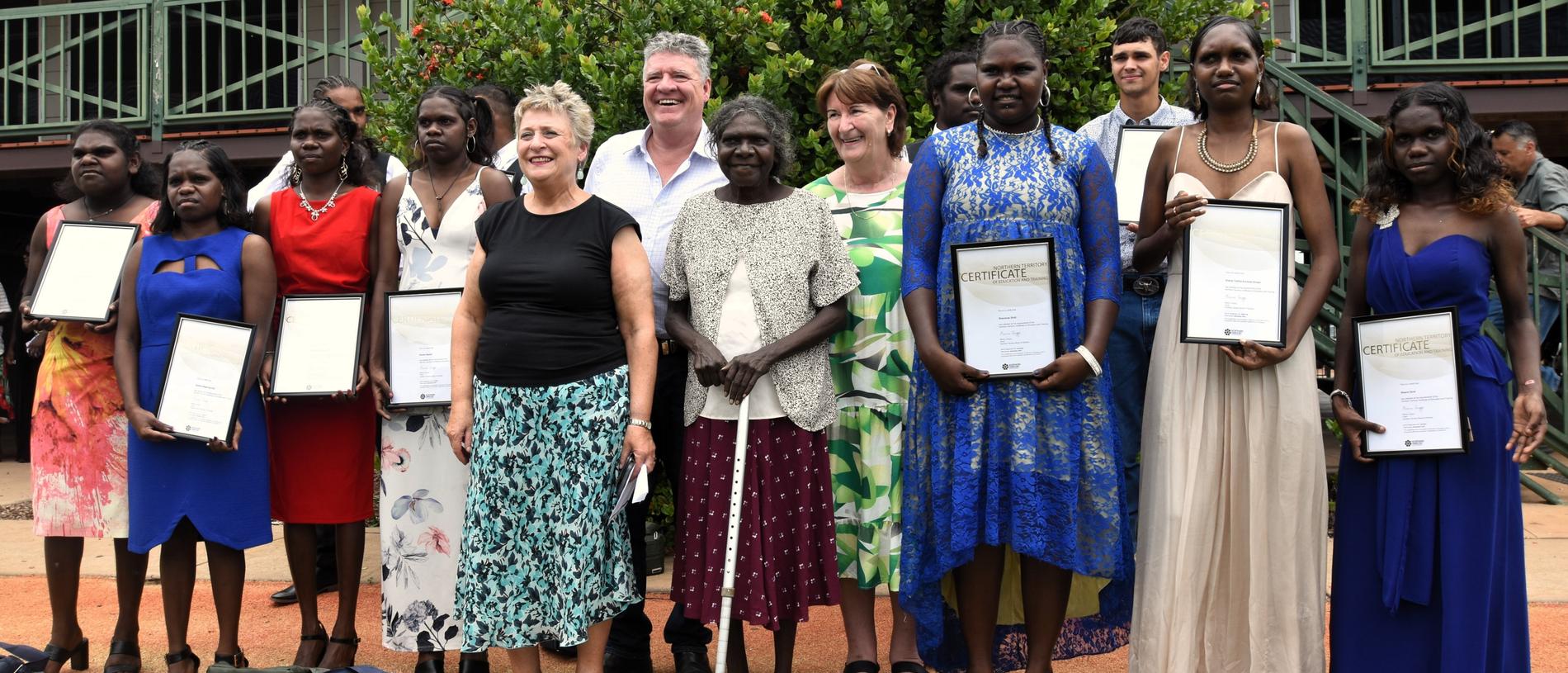
The Gunbalanya School graduates made up 5 per cent of the 212 Aboriginal students who received their NTCET in 2023, with many beginning their academic journeys with the Families as First Teachers program.
There were 1361 graduates across the Territory in 2023 compared to 1352 the previous year.
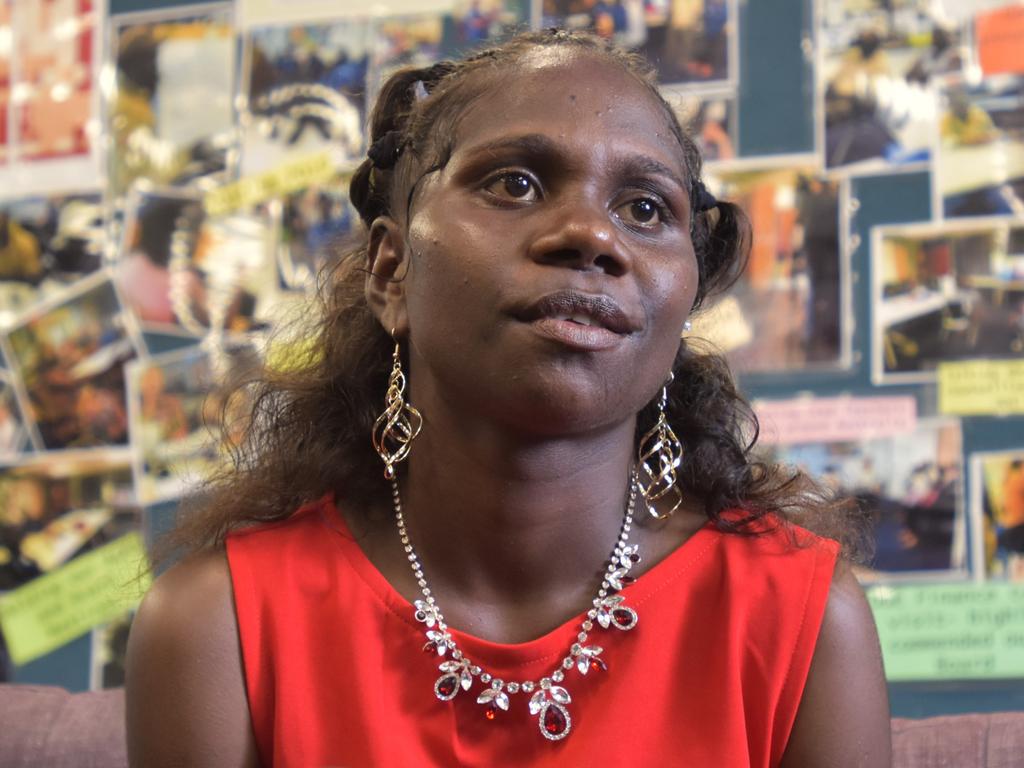
Graduate Mahalia Gameraidj said she had been learning “since (she) was a baby” and hopes to inspire young people to come to school every day.
She said she was excited to see where her next chapter took her but would miss school.
“I’m really proud and looking forward, I already have a job that I’ve started working,” Ms Gameraidj said.
“I chose the job to work at the creche, because when I was a baby I was in creche, and then I moved to Transition, to primary, and then all the way to secondary.”
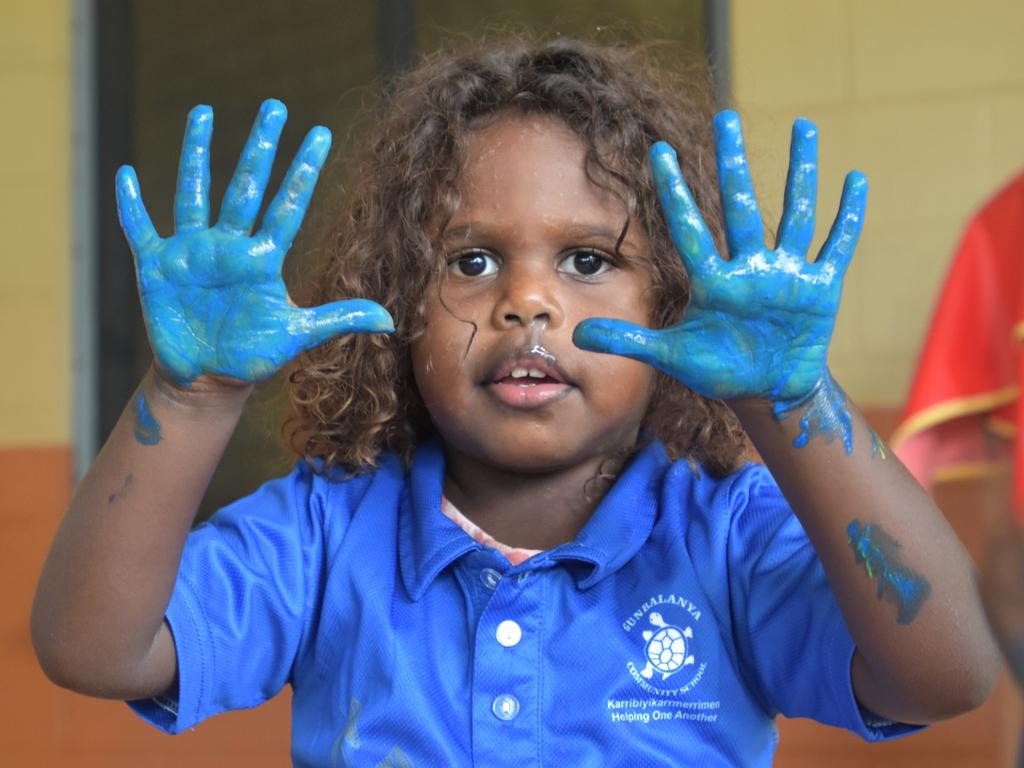
Ms Gameraidj will be working alongside her mother to deliver a strong educational foundation to the school’s youngest kids.
“If it wasn’t for my mum, it wasn’t for me to be here,” she said.
“My mum – she is a strong woman and encourages me and tells me a lot and talks to me a lot.”
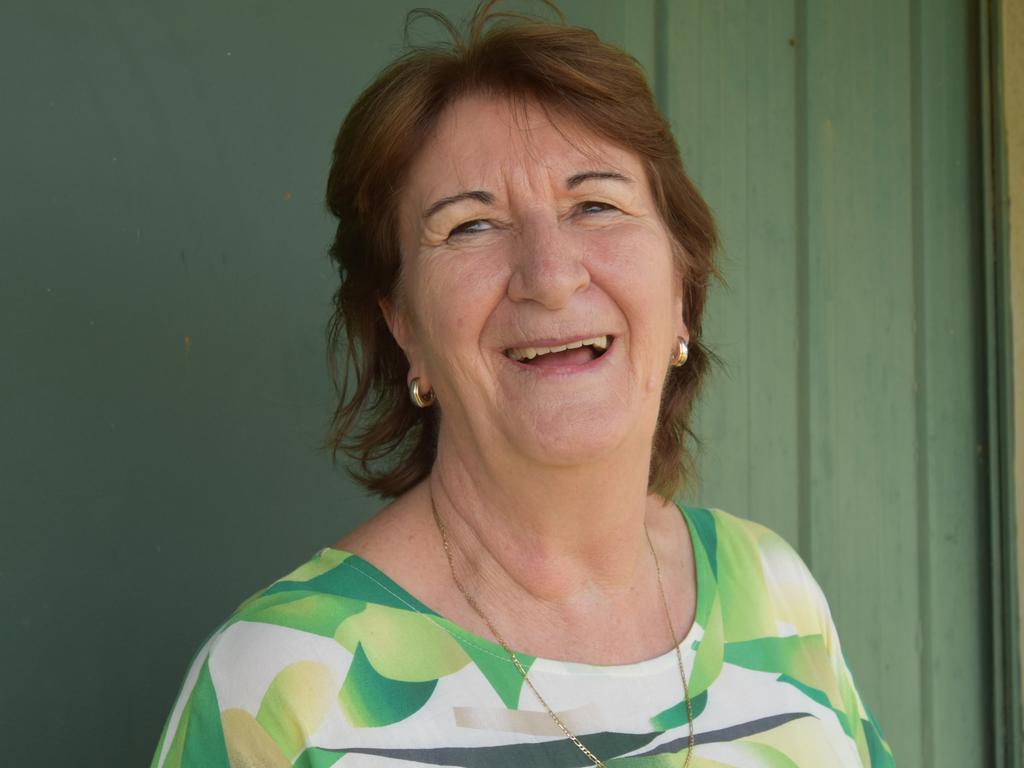
Gunbalanya School co-principal Sue Trimble said it was “a really big job” to get 11 of her students through to graduation.
Ms Trimble said she was proud of her staff’s efforts throughout the year.
“You need to be a special teacher to run this show,” she said.
“(You) need to have faith and to set the standard, to set up a flexible routine so students can accommodate the learning pathway between study, work, family, and obligations.
“Teachers that I’ve had here are very keen to work with families to make every pathway possible.”
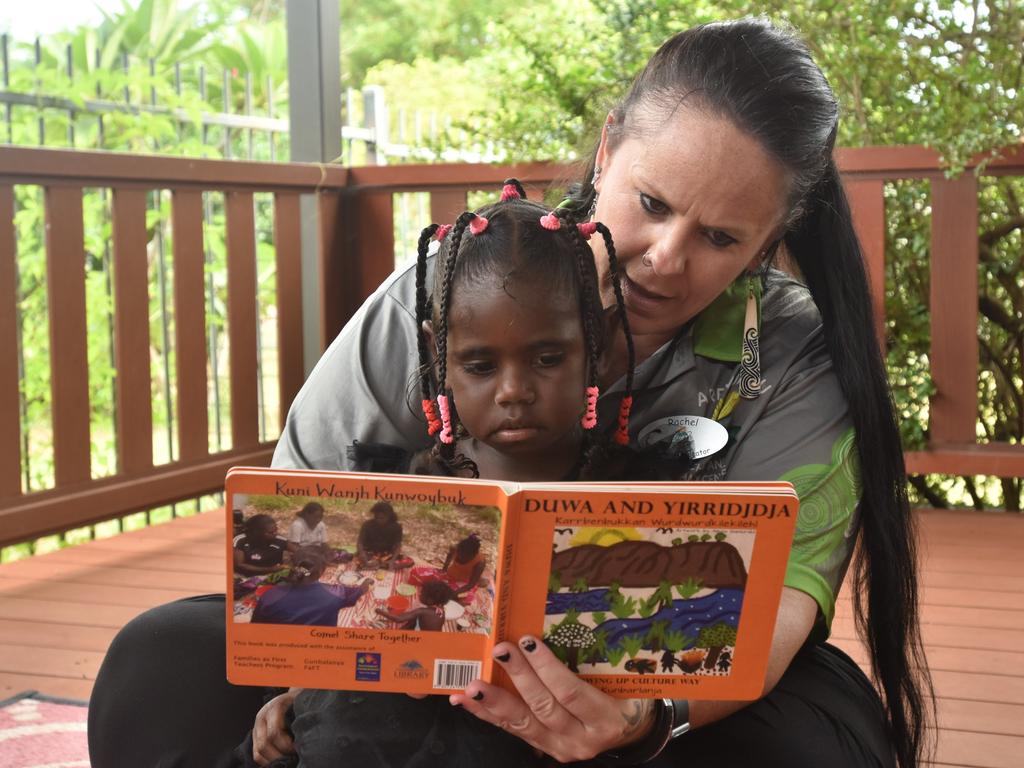
Ms Trimble said her students’ attendance averaged at 85 per cent and they reached B- and C-levels in their final grades.
She said “turtle steps” meant the students took charge of their education and came to school whenever they could.
Not only did they come, they arrived at seven o’clock in the morning, she said.
“It was all documented on their classroom walls so they could check every assignment, every task that they needed to complete, so they knew where they were going.
“Not everyone was on track consistently – they dropped down, they had other obligations, and then they’d have to make it up.”
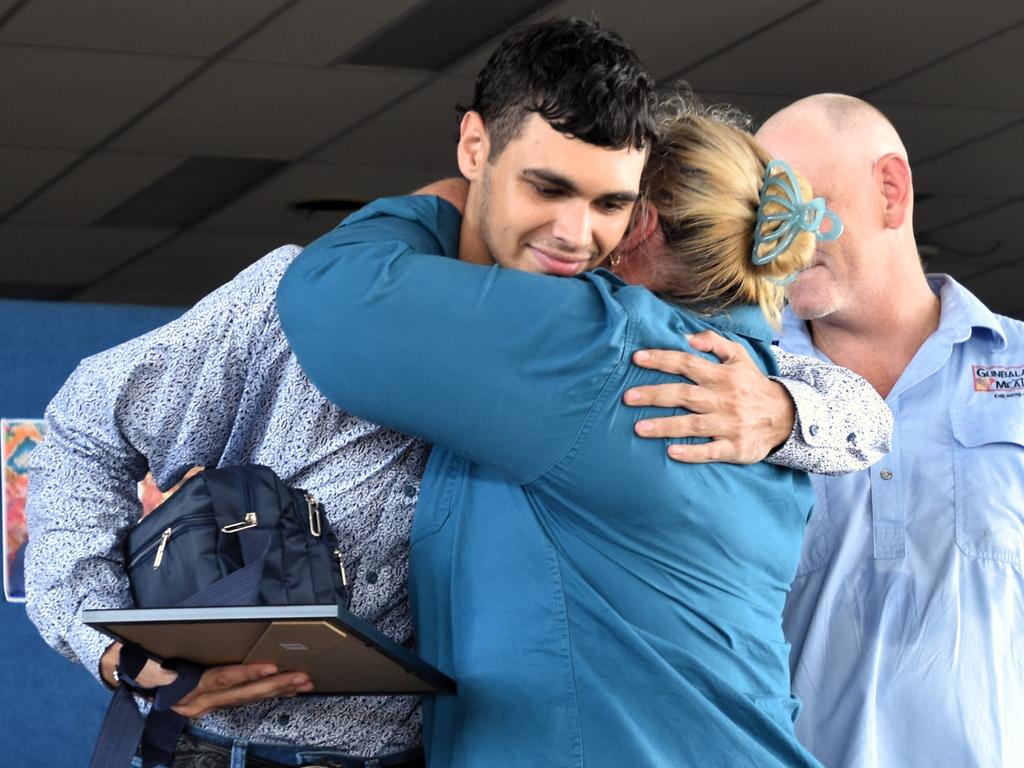
Ms Trimble said every 2023 graduated completed their studies with no VET component.
“That makes it even trickier, so they’ve worked very hard,” she said.
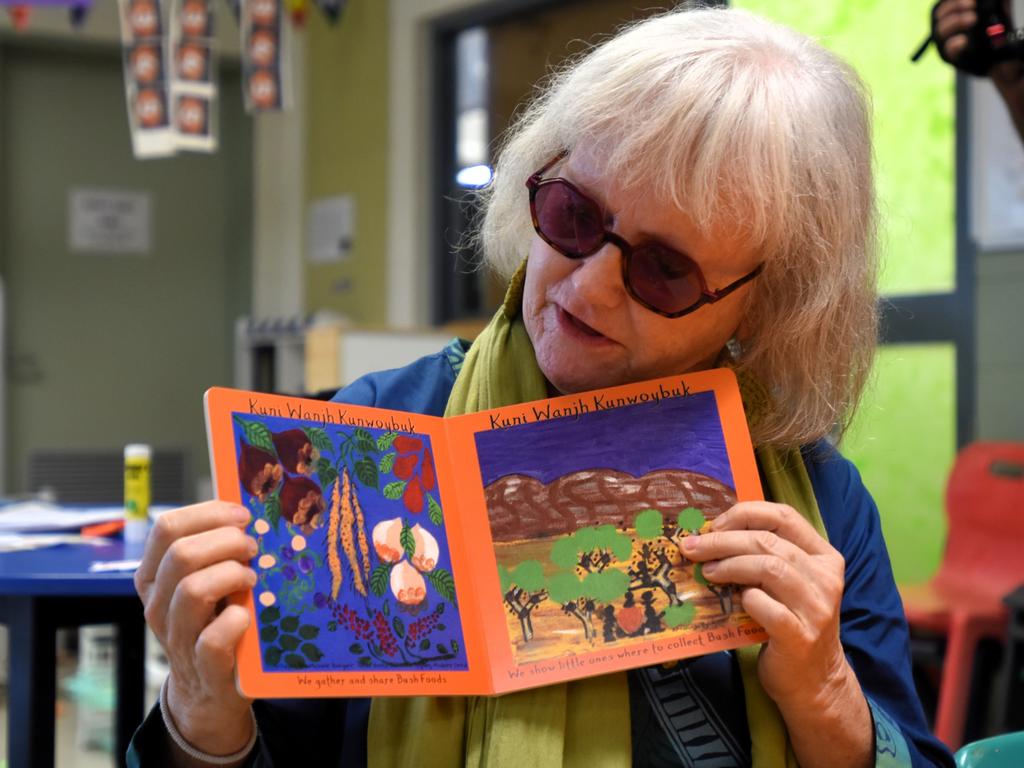
Nuala Scannell was one of Gunbalanya’s first FAFT educators when the program rolled out to the West Arnhem community in 2010.
Ms Scannell said graduate Rosita Badari was one of the students engaged in the early learning program many years ago.
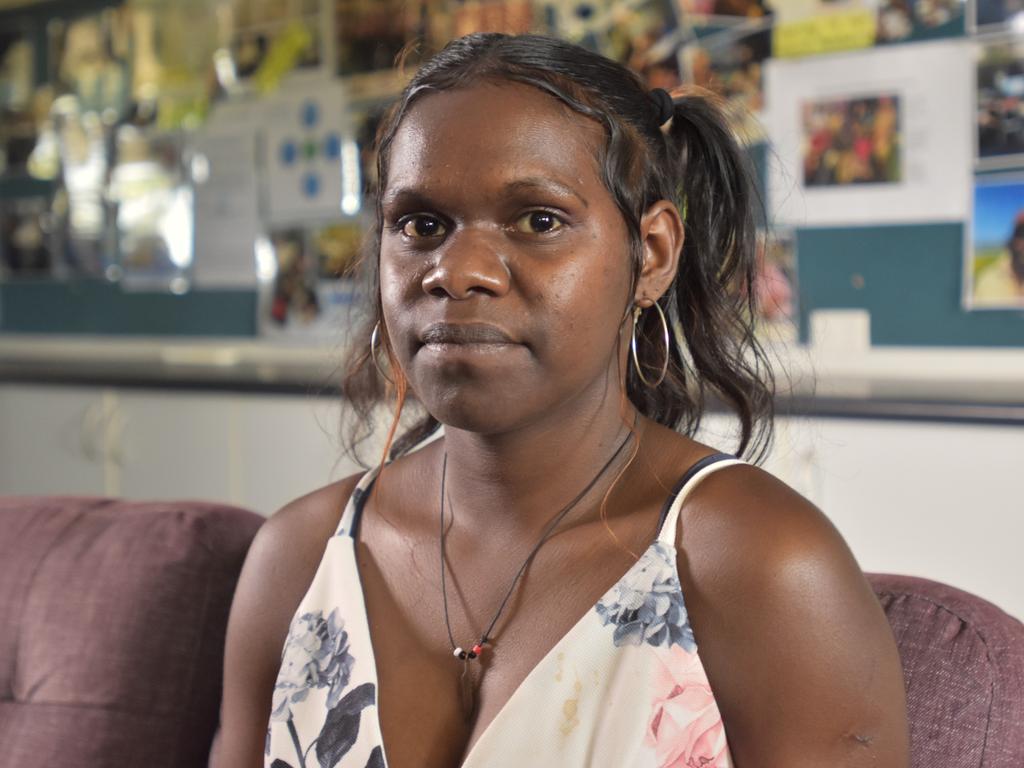
Ms Scannell said the program’s early lessons were mobile, and she would cart equipment back and forth across the community to reach different families.
“It was a lot of liaising with families, and it was a lot of learning together on Country, learning games and little reading games with the children,” she said.
“The great thing about FAFT, is FAFT is a three-way educational program as well, because we’re working with the parents which are the young mums quite often, and they’re getting trained as educators.”
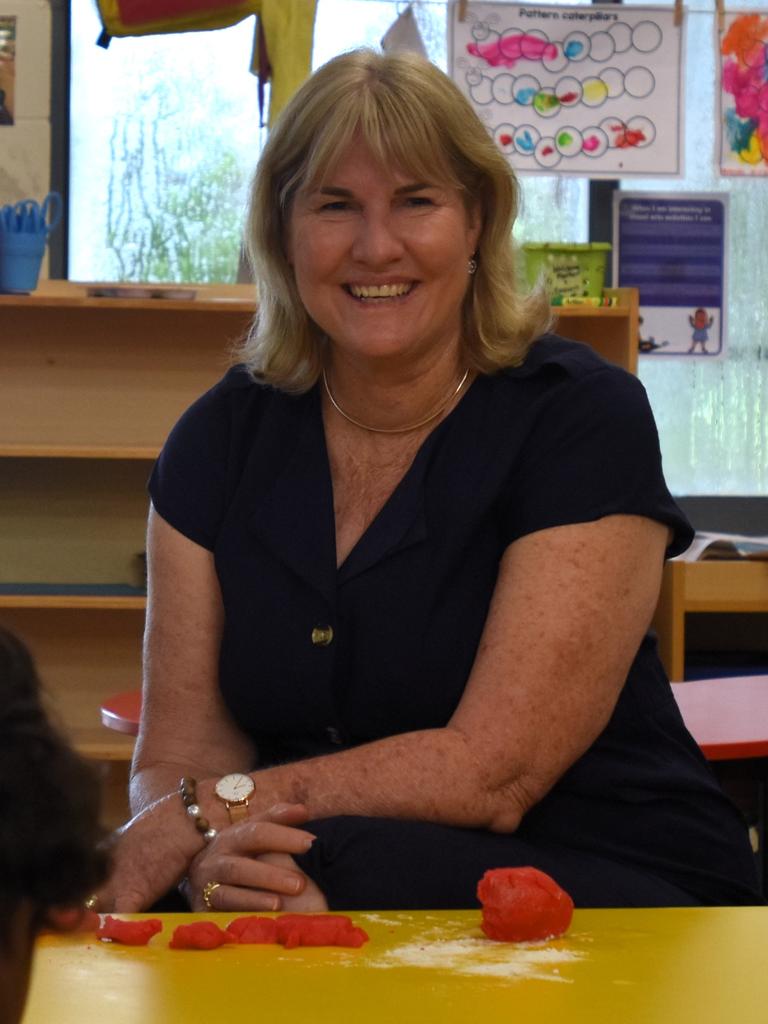
Chief Minister and former Education Minister Eva Lawler said part of the graduates’ success came from consistent relationships with their teachers.
“A place like Gunbalanya – where you’ve had strong leadership for a long time and there’s been some long-term teachers here... (for) 20-30 years – is just really amazing,” Ms Lawler said.
“As a government, we continue to provide incentives in our remote schools.”
Ms Lawler said the incentives included paid housing, a remote allowance, fares out of isolated communities, and special remote study leave points.




